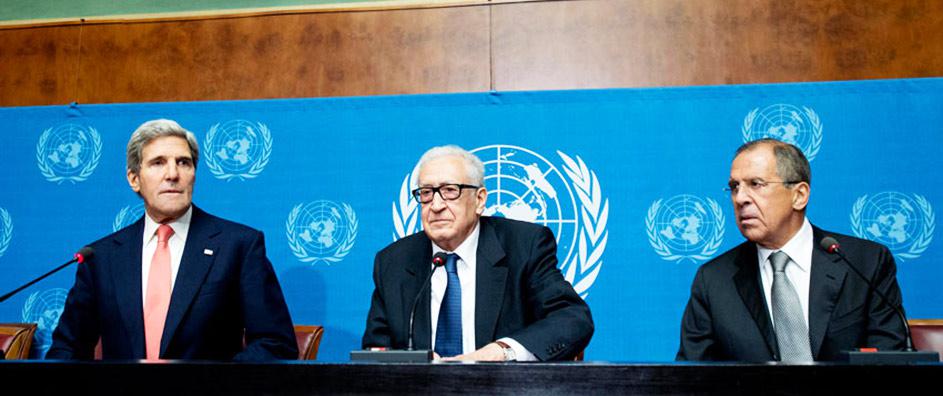In contemporary society, the discourse surrounding peace negotiations frequently gravitates towards the conspicuous absence of women. The predominance of male voices within peace talks invites not only scrutiny but also a critical analysis through various philosophical lenses. The Baha’i Faith, with its foundational tenets that champion equality, offers a unique perspective on the issue of gender representation in peace processes, aiming to elucidate why these talks remain largely male-dominated. This analysis endeavors to unveil the underlying dynamics that contribute to such disparities and proposes a paradigm shift towards inclusivity.
At the heart of Baha’i teachings lies the principle of the oneness of humanity. This concept posits that all individuals, regardless of gender, race, or background, possess equal rights and responsibilities. To comprehend the male-dominated sphere of peace negotiations, one must first recognize the historical context that has perpetuated gender inequality. Traditional patriarchal structures have long marginalized women’s roles, not only in political arenas but also in societal dialogues concerning conflict resolution. The Baha’i perspective encourages an exploration of how these entrenched norms intersect with the systems of power that govern peacebuilding efforts.
Additionally, the Baha’i commitment to justice as a divine attribute underscores the necessity for fair representation. The absence of women from decision-making processes in peace talks signifies systemic injustices that dismiss diverse perspectives. A diverse array of voices, including those of women, is essential for constructive dialogue and holistic resolutions. The Baha’i teachings advocate for a reevaluation of existing frameworks to address these inequities, emphasizing that diverse participation strengthens not only the processes of negotiation but also the resultant peace agreements, which are more likely to be sustainable and widely accepted.
Traditionally, peace negotiations have been dominated by individuals armed with institutional authority, often men in positions of power who have historically had greater access to military, economic, and political resources. Women, conversely, have been systematically excluded from these spheres, which fosters a lack of representation. The Baha’i Faith postulates that this exclusion not only undermines the principles of justice but also deprives the peacebuilding process of valuable insights that women can provide based on their unique experiences and perspectives in conflict situations.
The impact of including women in peace talks can be far-reaching. Research indicates that peace agreements are more likely to endure when women participate in the negotiation processes. The Baha’i teachings remind us that women often prioritize and advocate for humanitarian issues that address root causes of conflict, thus enabling a more comprehensive approach to peace. By examining the implications of this inclusion, one can draw attention to the necessity of fostering environments where women’s contributions are recognized and valued, thereby redefining the traditional landscape of peace negotiations.
Moreover, the Baha’i perspective emphasizes the transformative power of education in cultivating equality and engendering more inclusive peace processes. Educating both men and women about the principles of equality and the importance of collaborative dialogue is essential in dismantling the preconceived notions that perpetuate male dominance. Educational initiatives targeting the future generation can instill the values of cooperation and shared responsibility, fostering an environment where diverse voices are celebrated. Thus, one can argue that while existing structures may exhibit male dominance, the seeds of change can be sown through education and awareness.
Furthermore, the role of cultural narratives and societal expectations cannot be overlooked in discussions about gender and peace. Cultural norms heavily influence perceptions of gender roles, often relegating women to the margins of public discourse. Baha’i teachings advocate for the examination and reformation of these narratives to allow for a more equitable representation of women. Society must collectively challenge the archetypes that associate masculinity with strength and femininity with passivity. By valorizing the contributions of women in conflict resolution and leadership roles, we can initiate a significant cultural shift.
As we delve deeper into the impacts of male-dominated peace talks, it is imperative to reflect on the need for change not just at the grassroots level but also within higher echelons of decision-making. The Baha’i Faith calls for systemic transformation to create pathways for women to ascend to leadership roles in diplomacy and conflict resolution. Implementing quotas for female representation and establishing networks that support aspiring female leaders are potential strategies for operationalizing this transformation. Such mechanisms would ensure that women have not only a seat at the table but also an impactful voice in the conversations that shape their futures.
In contemplating the Baha’i approach to the question “Why are peace talks so male-dominated?”, one can glean that the solution lies in the collective will to foster equality. It is not merely the responsibility of women to advocate for their inclusion, but rather a shared responsibility that must involve men and society as a whole. Engaging men as allies in this discourse can facilitate a more comprehensive understanding of the necessity for gender equality in peace processes.
Ultimately, the exploration of this topic reveals a diverse array of layers, intricately woven through historical precedents, societal dynamics, and transformative potential embedded in the Baha’i teachings. By dismantling the patriarchal frameworks and embracing a more inclusive dialogue, societies can not only democratize peace talks but also enrich them. As humanity progresses towards a more equitable world, the dialogue surrounding gender in peace negotiations should evolve accordingly, guaranteeing that every voice is heard and valued. In essence, the path forward is not solely a pursuit of peace but also a quest for equality and justice — interconnected ideals that resonate profoundly within the Baha’i community and beyond.
